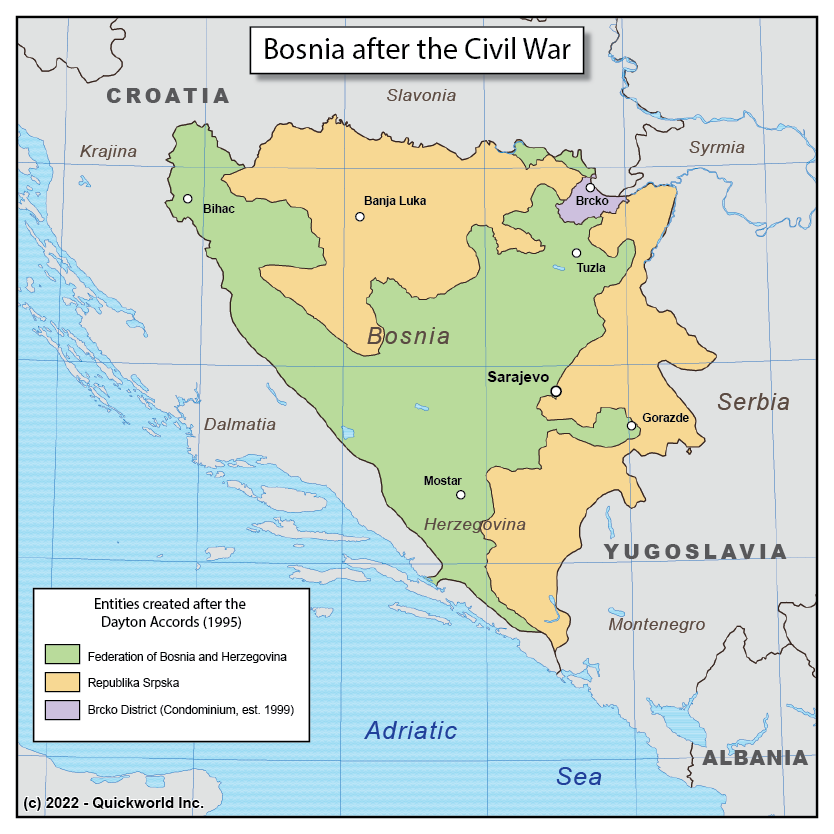Our "20th Century Conflicts" Series takes us to Bosnia-Herzegovina. This new country declared itself independent from Yugoslavia in 1991 but what followed was a brutal civil war that left deep marks that are still felt to this day.
While all secessions are likely to cause tension, the Bosnian secession was particularly conflictual due to the ethnic make up of the country: Bosnians, who are mostly muslim, Croats, mostly catholic, and Serbs, mostly orthodox. The Serb minority refused to separate from Yugoslavia or, short of that, considered they should merge with Serbia. The war that ensued involved the intervention of the predominantly Serb Yugoslav army, and major war crimes and acts of ethnic cleansing were committed until the various parties agreed to a truce in 1994. The country was separated into two entities that share very few common institutions. Despite this arrangement, the resentment between communities is still strong and the risk of renewed violence remains high.
More on Bosnia-Herzegovina
The Bosnian Civil War


